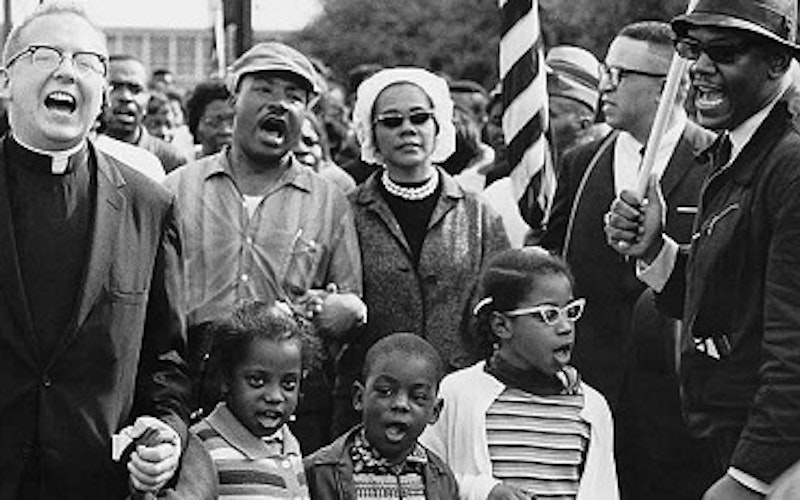
Culture At Large
Black History Month and the common language of Christ
Every February, the script remains largely unchanged. It’s Black History Month, and if people don’t celebrate it, they begin with the questions: "Why do we celebrate Black History Month, anyway?" "Why don’t we celebrate White History Month?" And from some of my Christian brothers and sisters I hear: "I just don’t get it. I’m saved, why should I have to think about Black history?" If you're saved, they argue, you don't need to think about anything else. Not race or racism, or any of the isms.
These questions reveal an enduring rift among Christians in this country - one that has healed, somewhat, but still has a long way to go.
It was Dr. Martin Luther King Jr., who, during a 1963 talk at Western Michigan University, said, “At 11 o'clock on Sunday morning when we stand and sing and Christ has no east or west, we stand at the most segregated hour in this nation.” Historically, black churches and denominations were established separately from white churches and denominations because of racism and discrimination. This made religion more salient among African-Americans as the black community began to develop a collective identity.
A 2009 report by the Pew Forum on Religion & Public Life found that African-Americans are significantly more religious on various measures than the rest of the U.S. population - most notably, belief in God, importance of religion in their lives and daily prayer. So the tie within the African-American community to the Christian faith is strong. Perhaps it is because of Christianity that blacks gained a larger voice.
The march toward reconciling and recognizing those who have made important strides in the name of Christ continues.
Christianity is the language that unites us under one redemptive belief, even though we may still practice segregation in some form. It is the charge toward this common language that gives voice to celebrations such as Black History Month and to revolutions such as the Civil Rights Movement. Absent Christianity, there is little or no collective consciousness to frame the rights of an oppressed people and the reconciliation that must continue to take place to maintain and secure those rights.
It’s important to remember, too, that many of those who are celebrated during Black History Month embraced and lived the Christian faith.
Dr. Carter G. Woodson started what would become Black History Month in 1926 with the goal of bringing national attention to African-American contributions throughout American history. Woodson, who wrote "The History of the Negro Church," became a devout Christian at an early age and his faith informed his understanding of American history.
Others, like the Rev. Dr. Martin Luther King Jr., saw the ministry as their calling and social reform as their divine duty. Still others, such as Harriet Tubman, saw themselves as doing God’s work here on Earth.
So, while the 11 o'clock hour on Sunday may still be the most segregated, the march toward reconciling and recognizing those who have made important strides in the name of Christ continues. The celebration of Black History Month should bring with it a sense of Christian pride and possibility. After all, many blacks and whites sing out of the same hymnal and read the same Bible every Sunday morning. The language of Christ is what we have in common.
Topics: Culture At Large, Theology & The Church, Faith, News & Politics, Social Trends, Justice, North America